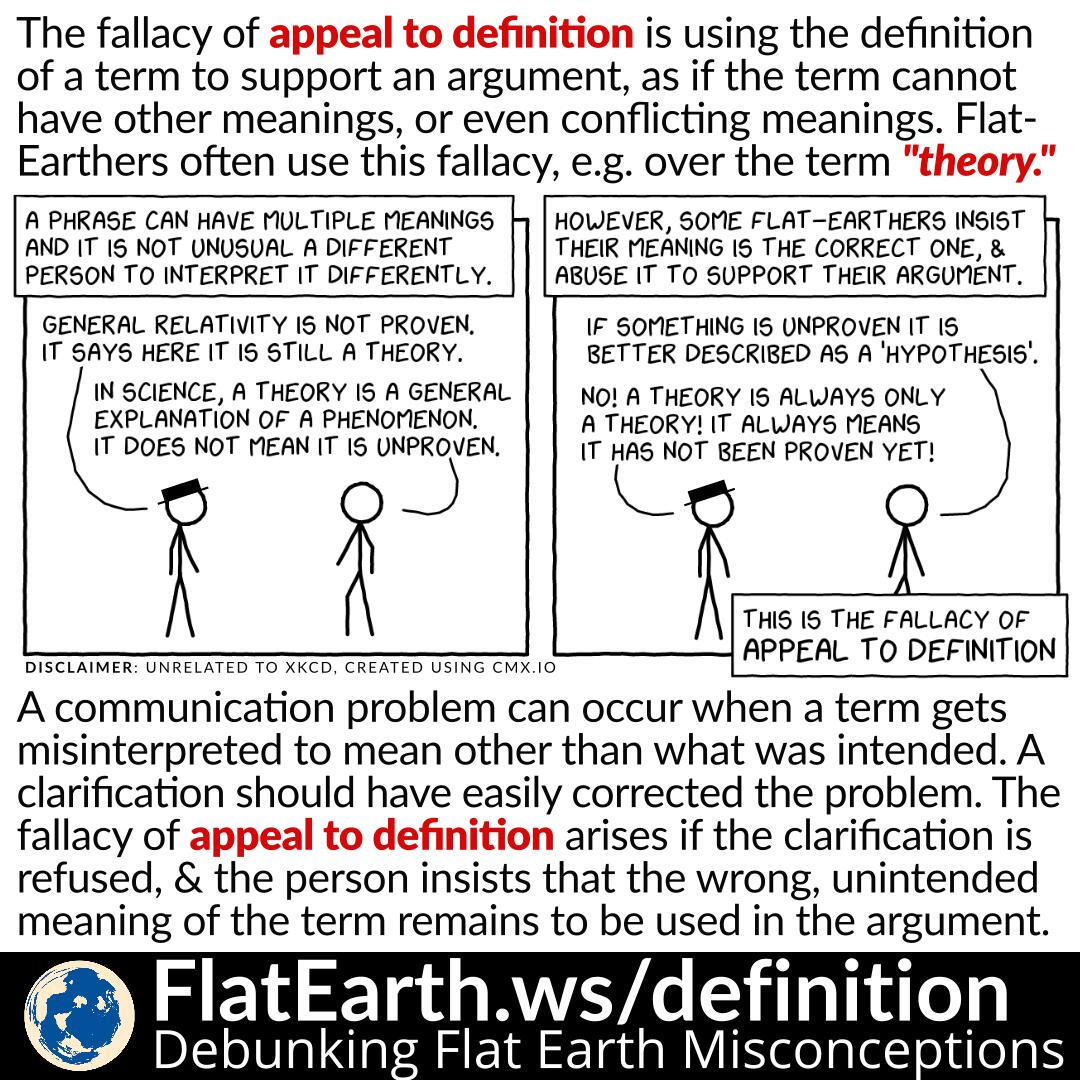The fallacy of ‘appeal to definition’ is using the definition of a term to support an argument as if the term cannot have other meanings or even conflicting meanings. Flat-Earthers often use this fallacy, for example, over the word “theory.”
A communication problem can occur when a term gets misinterpreted to mean other than what was intended. A simple clarification should quickly correct the problem. The appeal to definition arises if the clarification is refused, and the person insists on using the wrong & unintended meaning of the term, and use it to support their arguments.
Because a “theory” can mean speculation, flat-Earthers insist that something like the “theory of relativity” is speculation, and despite numerous attempt of correcting their interpretation, they insist that the wrong meaning remains to be used, and use it to support their claim that the “theory of relativity” is “only a theory”.
Other examples:
- Weight. In science, the weight of an object is the amount of force acting on the object due to gravity. They would try to confuse that intended meaning of weight with everyday usage of weight, which actually described as ‘mass’ in science.
- Sunset/sunrise: They claim the term ‘sunset’ or ‘sunrise’ imply they are caused by the motion of the Sun, not the Earth rotating.
- Level: Some dictionary entries define ‘level’ to mean approximately the same as ‘flat’. Flat-Earthers took advantage of this as if there is no other meaning of level.
- Horizon: Flat-Earthers boldly claim that the ‘horizon’ is perfectly flat because it is a “horizontal line.” If it is not flat —as they say— it is better to be called a ‘curvizon.’ In reality, their definition of ‘horizon’ is not even close to those in dictionaries.
References
- Appeal to definition – Logically Fallacious
- Argumentum as dictionarium – RationalWiki


